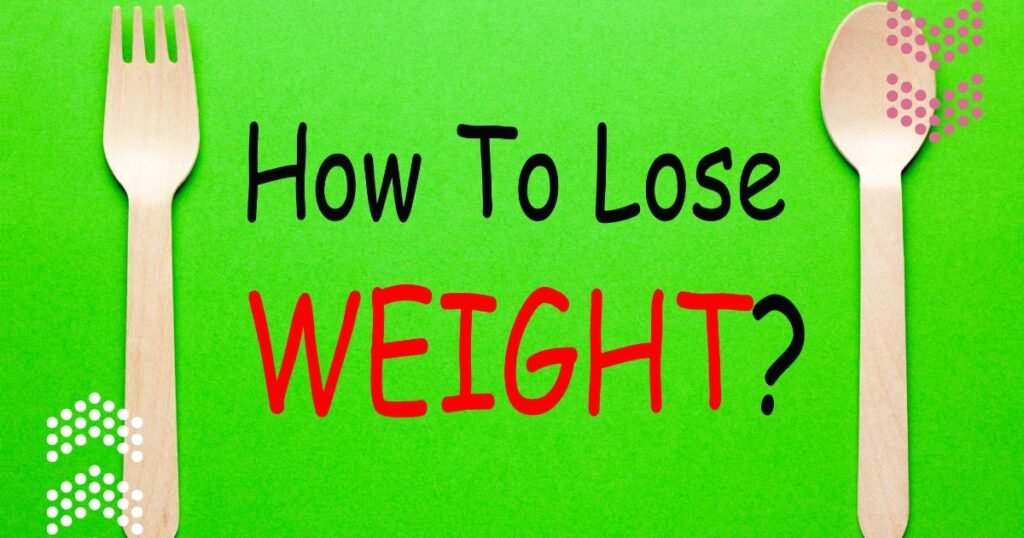Are you looking for an effective way to lose weight? Have you been struggling to find a diet and exercise plan that works for you? If so, you’re not alone. Many women face similar challenges when it comes to finding a program that fits their unique needs.
Women’s bodies go through different hormonal changes, life phases, and metabolic shifts, making weight loss a more complex journey compared to men. This blog post will offer some insightful weight loss tips specifically tailored for women, helping you embark on a healthier and more sustainable journey.
Read on for key strategies that will not only benefit your health but also your overall well-being, offering tips that are designed with women’s specific needs in mind.
Developing the Right Mindset for Weight Loss
The journey to weight loss begins with a shift in mindset. Often, women fall into the trap of labeling foods as “good” or “bad,” but this can create unnecessary guilt and sabotage progress. Rather than focusing solely on the numbers on the scale, think of weight loss as a way to feel stronger, more energized, and healthier.
Visualization techniques, such as picturing yourself achieving your health goals, can be incredibly motivating. Positive affirmations and self-compassion are also essential elements for long-term success.
Experts like clinical psychologist Dr. Lisa Orban suggest that focusing on diet, sleep, and exercise forms the foundation of a sustainable weight loss journey, especially for women who tend to juggle multiple responsibilities, leading to stress-related eating habits. By shifting your mindset from deprivation to nourishment, you can make healthier choices that last.
Setting Realistic Weight Loss Goals
Having the right mindset is just the first step; next, it’s important to set realistic goals. Unrealistic expectations often lead to disappointment and burnout, especially in weight loss journeys. It’s crucial to remember that losing 1-2 pounds per week is a sustainable and healthy pace.
Rather than cutting calories drastically, which can lead to nutrient deficiencies, focus on developing balanced eating habits that you can maintain long-term. Setting SMART (Specific, Measurable, Achievable, Relevant, Time-bound) goals can keep you focused.
For instance, aim to lose 4 pounds a month, but allow yourself flexibility in how you achieve it. Goals such as reducing sugar intake, walking 10,000 steps a day, or trying out a new vegetable each week can complement your long-term vision and make the process enjoyable.
Remember, studies have shown that gradual weight loss leads to better long-term success because it encourages lasting behavioral changes.
Why Cutting Refined Carbs is Essential
One of the most impactful changes you can make to your diet is reducing refined carbohydrates. Carbs, particularly refined varieties like white bread, pastries, and sugary drinks, can cause blood sugar spikes followed by rapid drops, leading to cravings and overeating.
By cutting down on refined carbs and swapping them for complex carbs such as whole grains, legumes, and vegetables, you can stabilize blood sugar levels and keep hunger at bay. Additionally, complex carbohydrates are rich in fiber, which supports digestive health and keeps you fuller for longer.
Studies have consistently shown that diets low in refined carbs, when paired with a nutrient-dense approach, help women achieve their weight loss goals while maintaining their energy levels throughout the day.
Consider integrating intermittent fasting into your routine for added benefits. Fasting gives your body the chance to burn stored fat and may enhance your metabolic health. Some women find intermittent fasting effective for managing hormonal balance and improving mental clarity.
However, it’s important to consult a healthcare provider before making any significant changes to your diet, especially when exploring fasting options.
No Crash Diets: Sustainable Lifestyle Changes for Women
It’s easy to fall into the trap of quick-fix diets, but these often lead to burnout and weight regain. Quick-fix diets may provide initial results, but they are typically not sustainable. For many women, crash diets can lead to a cycle of yo-yo dieting, which negatively affects both metabolism and mental health.
Instead of relying on fad diets, focus on making long-lasting lifestyle changes that align with your body’s needs. Building healthy habits like eating more whole foods, learning portion control, and scheduling regular physical activity into your daily routine are more likely to result in long-term success.
By adopting a sustainable, healthy relationship with food, you’ll be more likely to maintain weight loss over time and improve your overall quality of life.
For women, especially as we age, metabolism naturally slows, so incorporating resistance training and prioritizing protein intake can be incredibly beneficial.
Incorporating small, sustainable changes, such as increasing your vegetable intake or reducing processed food, will have a compounding effect on your health. Always think long-term; slow and steady wins the race.
Incorporating Resistance and Weight Training
For optimal weight loss and body composition, resistance and weight training are essential. Building muscle not only helps to tone your body but also increases your resting metabolism. This means that even when you’re at rest, your body burns more calories.
For women, strength training can help counteract the natural loss of muscle mass that occurs with age. Lifting weights 2-3 times a week, combined with cardiovascular exercises, can give you a more defined and lean physique. Studies show that adding resistance training to your fitness regimen can lead to an increase in lean muscle mass and a decrease in body fat, helping you tone your body and boost overall strength.
One misconception is that lifting weights will make women “bulky,” but this isn’t true. The hormone profile in women makes it harder to gain large amounts of muscle mass. Instead, weight training will help you build lean muscle, which contributes to a more toned appearance.
If you’re new to resistance training, consider starting with bodyweight exercises like squats, lunges, and push-ups before progressing to weights.
The Role of Healthy Fats in Weight Loss
Healthy fats are not the enemy of weight loss. In fact, they play an essential role in keeping you full and satisfied, which can prevent overeating. Foods rich in omega-3 and omega-6 fatty acids, such as avocados, nuts, seeds, and fatty fish, not only help with satiety but also provide key nutrients for hormone regulation and brain health.
Many women struggle with hormonal imbalances, and a diet rich in healthy fats can support better hormone function, improving both mood and energy levels. Including a variety of these fats in your daily diet can make meals more satisfying while supporting long-term health and wellness.
For example, adding a tablespoon of flaxseeds or chia seeds to your morning smoothie can boost your intake of healthy fats and fiber, keeping you energized throughout the day.
Boosting Protein Intake for Muscle Maintenance
Protein is critical for muscle maintenance and fat loss. Protein helps to repair and build muscle tissues, which is especially important when you’re engaging in regular physical activity. In addition to its role in muscle maintenance, protein can help regulate hunger hormones, keeping you feeling satisfied and reducing the urge to snack.
Aim to consume between 1.6 and 2.2 grams of protein per kilogram of body weight daily, choosing sources like lean meats, fish, beans, and nuts. For vegetarian or vegan women, plant-based proteins like lentils, chickpeas, quinoa, and tofu can provide the essential amino acids your body needs.
Remember, protein doesn’t always have to come from traditional sources. Try incorporating more high-protein snacks, such as Greek yogurt or hard-boiled eggs, into your diet. These simple changes can help you reach your daily protein goals and support your overall weight loss efforts.
Hydration: The Unsung Hero of Weight Loss
Water is a powerful yet often overlooked tool in weight loss. Staying hydrated not only aids in digestion but also helps reduce cravings. Often, our bodies mistake thirst for hunger, leading to unnecessary snacking. Drinking water before meals can help curb appetite and contribute to a calorie deficit, which is essential for fat loss.
Studies suggest that drinking 2 cups of water before meals can result in consuming fewer calories, which aids in weight loss over time. Aim for at least 4-5 liters of water per day to support overall hydration and help flush toxins from your body.
Healthy weight management for women includes hydration and proper nutrition as cornerstones for success.
Increase Your Fiber Intake
Fiber is a game-changer when it comes to weight loss for women. It not only promotes a healthy digestive system but also keeps you full longer, preventing overeating. A fiber-rich diet helps regulate blood sugar levels, reducing insulin spikes that can lead to fat storage, especially around the abdominal area.
Eating more fiber can make a significant difference in your weight loss efforts. Aim for at least 30 grams of fiber daily by incorporating foods like fruits, vegetables, whole grains, and legumes into your meals. Foods like lentils, chia seeds, and broccoli are excellent high-fiber choices that can keep you full and satisfied between meals.
Adding a variety of fiber-rich foods into your meals, such as oats, berries, and leafy greens, can boost your intake without drastically altering your diet. Fiber is also known to improve gut health, which is essential for long-term wellness.
The Importance of Sleep in Weight Loss
Sleep plays a crucial role in your weight loss journey. Poor sleep disrupts the balance of hormones responsible for regulating hunger and satiety, leading to increased cravings for sugary and high-carb foods.
Studies show that those who get less than 7-8 hours of sleep a night are more likely to struggle with weight gain, especially in the abdominal area. Sleep helps regulate the stress hormone cortisol, which, when elevated, can lead to fat storage. Getting adequate rest can help your body recover, regulate hormones, and keep your metabolism functioning optimally.
Additionally, a good night’s sleep boosts energy levels, helping you stay committed to your exercise routine and healthy eating plan.
Exploring Intermittent Fasting
Intermittent fasting has gained popularity in recent years, especially among women looking to manage their weight. This method involves cycles of eating and fasting, allowing your body to use stored fat as an energy source.
Fasting can help reduce insulin levels, increase growth hormone production, and promote fat loss, especially when paired with a balanced diet. Common approaches include the 16:8 method, where you fast for 16 hours and eat during an 8-hour window.
While intermittent fasting isn’t for everyone, many women find that it helps them manage portion control and reduce late-night snacking.
However, it’s essential to listen to your body and consult a healthcare professional before starting any fasting regimen. Intermittent fasting should be approached carefully, especially for women with specific health conditions or those who are pregnant or breastfeeding.
Finding Support and Accountability
Having a support system is invaluable on your weight loss journey. Whether it’s a friend, a partner, or an online community, having someone to keep you accountable can make a significant difference. Consider finding a weight loss partner, joining a group, or working with a coach to stay on track with your goals.
Support systems can provide the encouragement and motivation you need to stay focused, especially when challenges arise. Online communities, such as weight loss forums or fitness groups, can also be great places to find inspiration and share tips.
Diet and weight loss tips are abundant, but support and accountability will keep you focused.
Conclusion
Achieving your weight loss goals requires a combination of the right mindset, realistic goals, and healthy lifestyle changes.
By focusing on sustainable habits like cutting down on refined carbs, incorporating resistance training, increasing your protein and fiber intake, drinking plenty of water, and getting enough sleep, you can successfully manage your weight and improve your overall health.
As a woman, your journey is unique, and finding a balance that works for you is key. Browse through our resources, recipes, and fitness tips on our website, and let us guide you towards becoming the healthiest version of yourself.
Visit our site to explore what we offer, from workout programs to meal plans, designed specifically for women.


